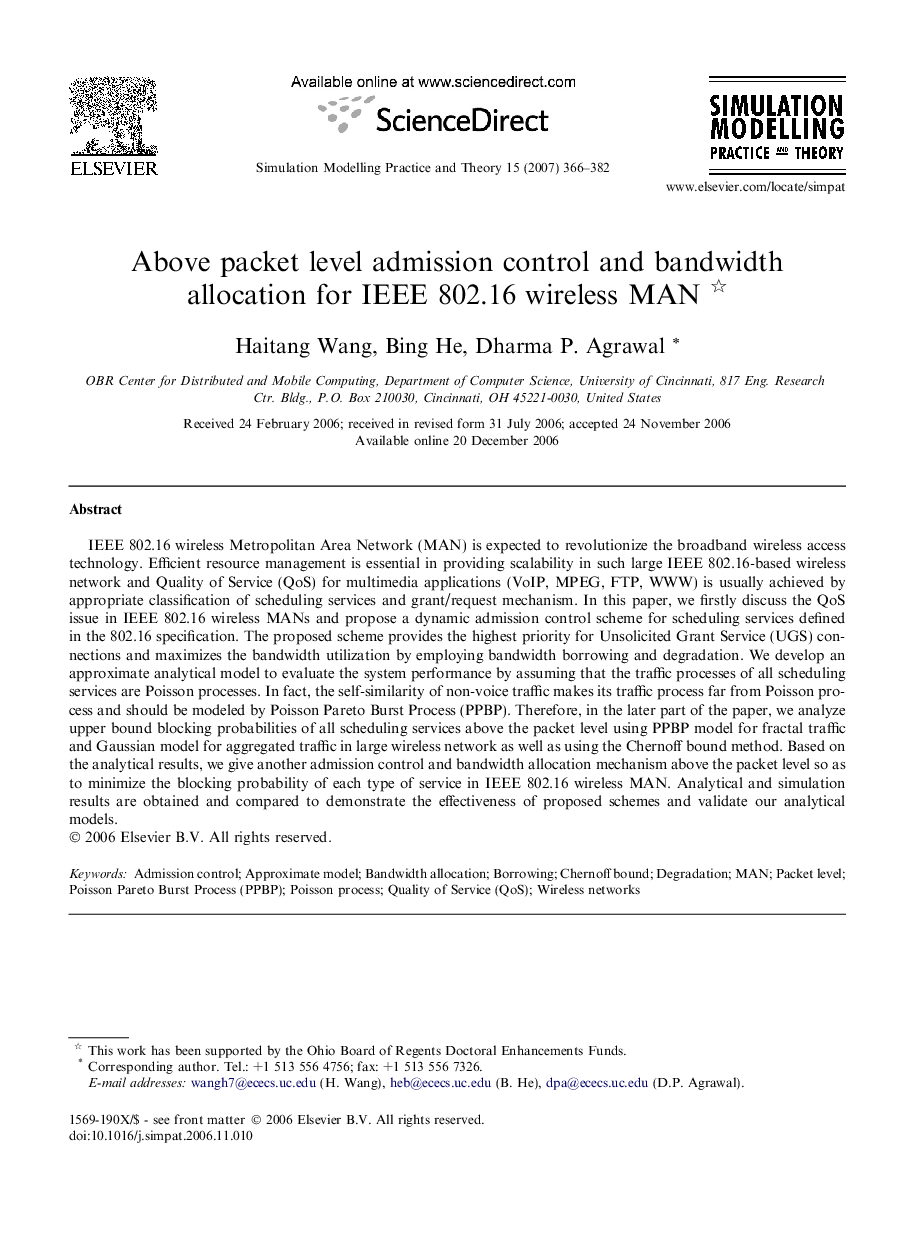| Article ID | Journal | Published Year | Pages | File Type |
|---|---|---|---|---|
| 493538 | Simulation Modelling Practice and Theory | 2007 | 17 Pages |
IEEE 802.16 wireless Metropolitan Area Network (MAN) is expected to revolutionize the broadband wireless access technology. Efficient resource management is essential in providing scalability in such large IEEE 802.16-based wireless network and Quality of Service (QoS) for multimedia applications (VoIP, MPEG, FTP, WWW) is usually achieved by appropriate classification of scheduling services and grant/request mechanism. In this paper, we firstly discuss the QoS issue in IEEE 802.16 wireless MANs and propose a dynamic admission control scheme for scheduling services defined in the 802.16 specification. The proposed scheme provides the highest priority for Unsolicited Grant Service (UGS) connections and maximizes the bandwidth utilization by employing bandwidth borrowing and degradation. We develop an approximate analytical model to evaluate the system performance by assuming that the traffic processes of all scheduling services are Poisson processes. In fact, the self-similarity of non-voice traffic makes its traffic process far from Poisson process and should be modeled by Poisson Pareto Burst Process (PPBP). Therefore, in the later part of the paper, we analyze upper bound blocking probabilities of all scheduling services above the packet level using PPBP model for fractal traffic and Gaussian model for aggregated traffic in large wireless network as well as using the Chernoff bound method. Based on the analytical results, we give another admission control and bandwidth allocation mechanism above the packet level so as to minimize the blocking probability of each type of service in IEEE 802.16 wireless MAN. Analytical and simulation results are obtained and compared to demonstrate the effectiveness of proposed schemes and validate our analytical models.
